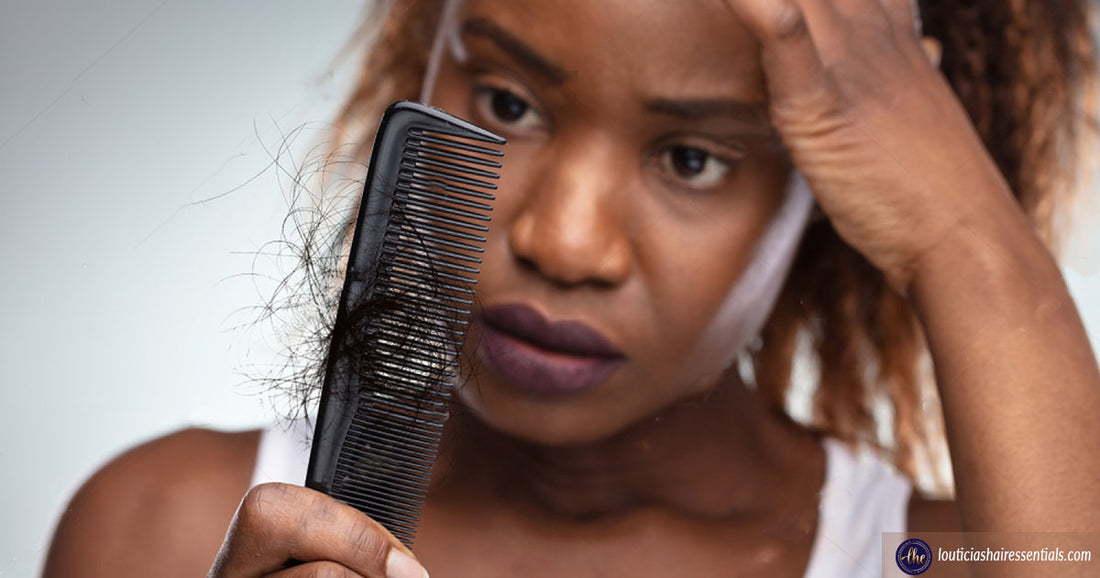
Women's Hair Loss: Why It Happens and What To Do
Women's hair loss affects approximately 40% of women by the age of 50. So, if you've started to notice hair thinning, you are not alone. And while this is true, it doesn't make losing your hair less devastating.
Previously thought to be a men's issue, this is no longer the case. Albeit a high number of women are affected, many are too embarrassed to go to the doctor. This raises an important question. Why do women suffer in silence while male hair loss is so openly discussed and treated?
The Emotional Effects Of Women's Hair Loss
Societal pressure that women should have long, full hair dates back to biblical times. You know? The phrase about 'crowing glory'. Consequently, it's not surprising that when a woman's hair thins, she feels like she's losing part of her identity.
There is definitely a link between stress and hair loss. In fact, things that negatively affect our mind, emotions, or body can affect our hair. For instance, experiencing a trauma event can later lead to thinning hair.
Trauma not only deeply impacts physiological well-being and overall health, but it also impacts mental health. As such, thinning hair caused by a stressful event, a person must deal with the initial trauma. However, the trauma that occurs when losing their hair must also be resolved.
Women's hair loss treatments are on the rise. But be aware, it's important to know what type of hair loss you are dealing with.
Different Types Of Hair Thinning
The four stages of the hair cycle are Anagen (growth), Catagen (end of growth cycle), Telogen (dormancy), and Exogen (shedding). Each hair follicle goes through this process at different times. Otherwise, all of our would be lost at the same time before it started to regrow.
The number of hairs shed per day depends on the individual. So, there's no 'normal' shedding. However, if you're finding extra hairs on your pillow, it could mean your hair growth cycle has been disrupted.
There are numerous factors that contribute to female pattern hair loss. In general, genetics is at the top of the list, as well as hormonal changes. With this in mind, there are different types of women's hair loss which includes:
1. Alopecia - The complete or partial loss of hair and is divided into scarring and non-scarring cases. Androgenic, or non-scarring alopecia, is determined by genetics. The hair thins out in the front and top of the scalp and the part appears to get wider. Alopecia areata is the result of the immune system attacking the hair follicles, thus causing additional shedding. Then there's Telogen effluvium. This type of women's hair loss is due to emotional or physical stress. In general, hair loss is noticed at sides of the scalp and along the temples.
2. Cancer Treatments - Most people assume that chemotherapy drugs always cause hair loss. But some only cause slight thinning or no hair loss at all. On the other hand, other types of chemotherapy may cause complete hair loss. While this may be true, no woman wants to loose any amount of hair, period.
3. Chemical Burns - There's usually a price to pay for our beauty. When applied incorrectly, hair treatments such as relaxers, dyes, etc., can cause severe scalp burns. And after healing from these treatments, hair loss is inevitable. The resulting scarred tissue on a damaged scalp cannot regrow hair and leaves an unsettling reminder of the traumatic event.
How To Treat Female Hair Loss
Regardless of the cause, the goal of treating women's hair loss is to encourage regrowth. Or at the very least, to induce the hair follicles to function to the best of their ability. However, it's important to have realistic expectations.
Expensive invasive hair transplant surgery may not be an ideal solution as it adds more stress to your already traumatize scalp. It's also considered cosmetic surgery and is therefore not covered by most insurance plans.
A custom hair replacement system or hair prosthesis is the best alternative. We provide medical wigs that are made specifically for each client’s needs. Our hair loss specialist will privately consult with you to assess your scalp’s sensitivity and individual hair loss situation.
___________________
Request a free consultation online or call (619) 820-0290 to learn more about our custom made wigs.